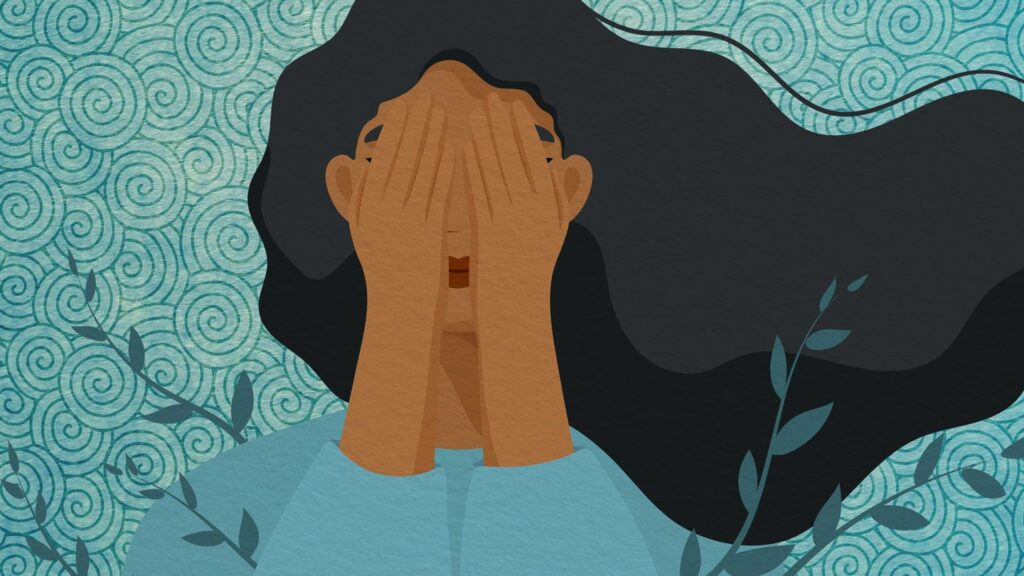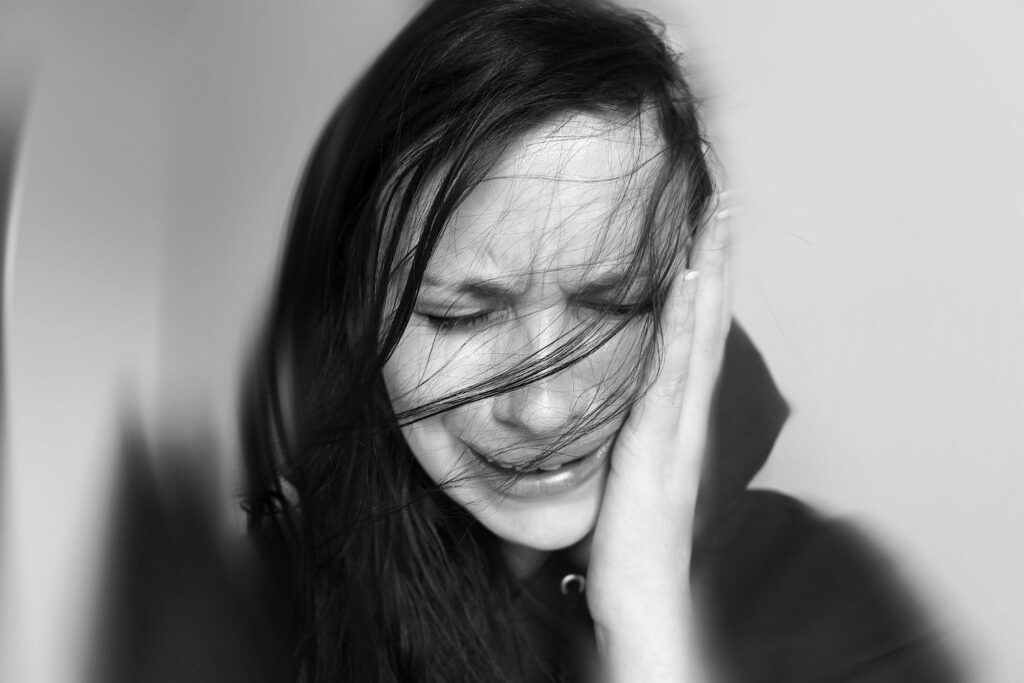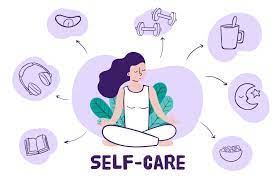Depression is a serious mental illness that affects millions of people each year. It can cause a person to feel sad, hopeless, and worthless. These feelings can be so severe that they interfere with a person’s ability to work, sleep, eat, and enjoy life. If you are struggling with depression, it is important to get help. This blog post will discuss what deep depression is, signs that you may be suffering from it, and how to cope.
Contents
What Is Deep Depression?

Deeps depression is a serious mental illness that can have a profound negative impact on every aspect of your life—from your mood and behavior to your physical health. Deep depression is also a very real and treatable medical condition.
People may be having this type of depression experience changes in their eating and sleeping habits, have low energy and motivation, and may even contemplate or attempt suicide. Depression can also lead to physical health problems such as heart disease, stroke, and diabetes.
Deep depression is different from the normal ups and downs of life. With deep depression, the feelings of sadness, hopelessness, and helplessness linger for weeks or even months. And they don’t go away simply by “cheering up.” People with deep depression often feel like nothing will ever get better and that life isn’t worth living.
If you think you may be suffering from deep depression, it’s important to seek professional help. The sooner you get treatment, the better your chances are of recovering.
What Are The Symptoms of Deep Depression?

The symptoms of deep depression can vary depending on the individual, but there are some common signs and symptoms to look out for. If you or someone you know is experiencing any of the following, it could be a sign of deep depression:
Sadness or Emptiness
One of the most common and defining symptoms of deep depression is an ongoing feeling of sadness or emptiness. This can be accompanied by crying spells, insomnia, or a loss of interest in activities that used to bring joy. When sadness and emptiness are severe, they can lead to suicidal thoughts.
Anger or Irritability
Another common symptom of deep depression is anger or irritability. People who are depressed may lash out at loved ones, friends, or even strangers for no apparent reason. They may also be easily agitated and have a hard time concentrating.
Loss of Interest or Pleasure in Activities
When someone is dealing with deep depression, they may lose interest in activities that they used to enjoy. This can include sex, hobbies, work, or spending time with friends and family. Not only is the loss of interest pronounced, but it can also last for weeks or months at a time.
Changes in Appetite and Sleep Patterns
Many people with deep depression also experience changes in their appetite and sleep patterns. They may have trouble falling asleep or staying asleep, which can lead to fatigue during the day. Some people with deep depression may lose their appetite altogether, while others may eat more than usual and gain weight.
Physical Symptoms
Deep depression can also cause physical symptoms such as headaches, stomachaches, and back pain. People with depression may also feel constantly fatigued and have difficulty concentrating or making decisions. These physical signs of depression can have a profound impact on every aspect of your life.
Constant Feelings of Guilt, Worthlessness, or Hopelessness
People with deep depression often feel like they’re not good enough or that they will never get better. They may have negative thoughts about themselves and their future. These feelings of hopelessness can be so severe that they lead to suicidal thoughts or attempts.
Constant Thoughts About Death or Suicide
If you’re thinking about death or suicide, it’s important to get help immediately. These thoughts can be a symptom of deep depression and should not be ignored. If you or someone you know is expressing these kinds of thoughts, call a suicide hotline in your area or go to the emergency room.
These are some of the signs of deep depression. Signs may depend on person to person that he or she is suffering from deep depression. But, it is necessary to get help as soon as possible because deep depression can lead to suicidal thoughts.
Causes of Deep Depression

The causes of deep depression are not fully known, but they may be due to a combination of genetic, biological, environmental, and psychological factors.
Genetics
One of the most important risk factors for deep depression is a family history of the disorder. If your parents or other close relatives have had depression, you’re more likely to develop the condition. These genetics are thought to be due to a combination of genetic and environmental factors.
Biological
Deep depression may also be caused by changes in certain brain chemicals. Neurotransmitters are chemicals that allow communication between nerve cells in the brain. If there’s an imbalance of these neurotransmitters, it can lead to deep depression. This may be due to a chemical reaction or a change in how the body processes these chemicals.
Environmental Factors
Environmental factors can also play a role in the development of deep depression. stressful life events, such as:
Death of Loved One
When one of the most environmental factors is that the person who is suffering from deep depression had lost his or her loved one, it seems like the end of the world. The feeling of loneliness and helplessness can be so intense that it may feel impossible to cope.
Divorce
a divorce may lead to deep depression. The process of divorce itself is often stressful and can be accompanied by feelings of grief, loss, and betrayal.
Financial difficulties
The loss of a job or financial difficulties can also lead to deep depression. The stress of not being able to pay bills or provide for your family can be overwhelming.
Physical illness
A physical illness can also trigger deep depression. The pain and fatigue of the illness can make it difficult to cope with the everyday demands of life. In addition, the side effects of some medications can contribute to depression.
Psychological Factors
Several psychological factors may play a role in the development of deep depression.
Low self-esteem
People who have low self-esteem are more likely to develop deep depression. They may feel that they’re not good enough or that they don’t deserve to be happy.
Perfectionism
People who are perfectionists may also be at risk for deep depression. They may set unrealistic standards for themselves and feel that they can never meet them. This can lead to feelings of failure and worthlessness.
Negative Thinking
People who have a negative outlook on life may be more likely to develop deep depression. They may see the world as a dark and scary place and believe that bad things will always happen to them.
Sensitivity To Rejection
People who are sensitive to rejection may also be at risk for deep depression. They may take it personally when someone doesn’t return their calls or cancels plans with them. They may also have a hard time dealing with criticism.
Cognitive Factors
Cognitive factors may also play a role in the development of deep depression. People who have negative, distorted thinking patterns may be more likely to develop the disorder. For example, people who always see the worst in every situation or who always expect the worst to happen may be more likely to become depressed.
How Is Deep Depression Different From Depression?
The difference between deep depression and regular depression is the severity of the symptoms. Deep depression is characterized by intense feelings of sadness, despair, and hopelessness that last for weeks or longer. People with deep depression may also have physical symptoms, such as fatigue, changes in appetite, or trouble sleeping. Additionally, deep depression can lead to suicidal thoughts or attempts.
Another point of difference is that deep depression is often resistant to treatment. This means that people with deep depression may not respond well to antidepressants or other medications. They may also need to participate in longer-term therapies, such as psychotherapy, to see any improvement.
Sometimes, deep depression is used to describe a specific type of depression called a major depressive disorder. Major depressive disorder is a mental health condition that causes severe symptoms that can interfere with a person’s ability to function in their everyday life. People with the major depressive disorder may have periods of remission, but the symptoms typically return at some point.
If you think you or someone you know may be experiencing deep depression, it’s important to seek professional help. Depression is a serious condition, and it’s vital to get treatment as soon as possible. A mental health professional can provide an accurate diagnosis and create a treatment plan that can help improve your symptoms.
Treating Deep Depression

Treatments for deep depression typically involve a combination of medication and talk therapy.
Some of these methods are:
Medications
One of the most common treatments for deep depression is medication.
Several different types of medication can be used to treat deep depression, and the best type for each individual will vary depending on the severity of their symptoms and any other health conditions they may have.
Some of the most commonly prescribed medications for deep depression include:
Selective serotonin reuptake inhibitors (SSRIs): Examples of SSRIs include fluoxetine (Prozac), sertraline (Zoloft), and escitalopram (Lexapro).
Serotonin-norepinephrine reuptake inhibitors (SNRIs): Examples of SNRIs include duloxetine (Cymbalta) and venlafaxine (Effexor).
Tricyclic antidepressants (TCAs): Examples of TCAs include amitriptyline and nortriptyline.
Monoamine oxidase inhibitors (MAOIs): This can help to increase levels of these neurotransmitters in the brain, which can improve mood. Examples of MAOIs include tranylcypromine (Parnate) and isocarboxazid (Marplan).
Talk Therapy
In addition to medication, talk therapy is often used to treat deep depression.
Talk therapy can involve several different types of therapies, such as cognitive-behavioral therapy (CBT), interpersonal therapy (IPT), and psychodynamic therapy.
These therapies can help individuals to identify and change negative thought patterns or behaviors that may be contributing to their depression.
CBT: One of the most common types of talk therapy used to treat deep depression is CBT. CBT focuses on helping individuals to identify and change negative thought patterns or behaviors that may be contributing to their depression.
IPT: IPT is a type of therapy that focuses on helping individuals to understand and improve their relationships with others. This can help treat deep depression, as individuals who are isolated or have difficulty in their relationships may be more likely to experience symptoms of depression.
Psychodynamic therapy: Psychodynamic therapy focuses on helping individuals to understand the unconscious factors that may be contributing to their depression. This type of therapy can help identify any unresolved issues from the past that may be causing distress in the present.
Support Groups

One of the best things you can do if you’re struggling with deep depression is to join a support group.
Support groups provide a space for individuals to share their experiences and connect with others who understand what they’re going through.
There are many different types of support groups available, so it’s important to find one that feels right for you. There are also many online support groups available, which can be a convenient option if you’re unable to attend an in-person group.
If you’re struggling with deep depression, know that you’re not alone. There are many resources and support groups available to help you through this difficult time.
Self-Care

One such coping strategy is self-care. Self-care means taking care of yourself both physically and emotionally.
It’s important to find activities that make you feel good and help to reduce your stress levels. Some examples of self-care activities include:
- Exercise: Exercise can help to improve your mood and alleviate symptoms of depression. It can also help to reduce stress levels, which can help manage deep depression.
- Relaxation techniques: Relaxation techniques, such as yoga, meditation, or deep breathing, can help to reduce stress levels and promote feelings of calmness and relaxation.
- Connect with loved ones: Spending time with loved ones or close friends can help to reduce feelings of isolation and loneliness, which are common symptoms of deep depression.
- Get outside: Spend time in nature, go for a walk, or simply sit outside and soak up some vitamin D. Getting some fresh air and spending time in nature can help to improve your mood and reduce stress levels.
There are many different ways to practice self-care. It’s important to find activities that work for you and make you feel good. If you’re not sure where to start, there are many resources available online or from your local library.
Conclusion
Deep depression can be extremely debilitating. It can make it difficult to get out of bed in the morning, interact with others, and concentrate on work or school. It can cause a person to lose interest in activities that were once enjoyable, to withdraw from friends and family, and to isolate oneself.
If you are struggling with deep depression, know that you are not alone. There are many resources available to help you through this difficult time. Seek professional help if your depression is interfering with your ability to function in your day-to-day life. With treatment, you can begin to feel better and live a full and meaningful life.
Hope this article was of help to you! If you are suffering from mental health disorders, you may seek help from Therapy Mantra. We have a team of highly trained and experienced therapists who can provide you with the tools and skills necessary for overcoming mental health disorders. You can also book our online depression counseling session or download our free Android or iOS app


